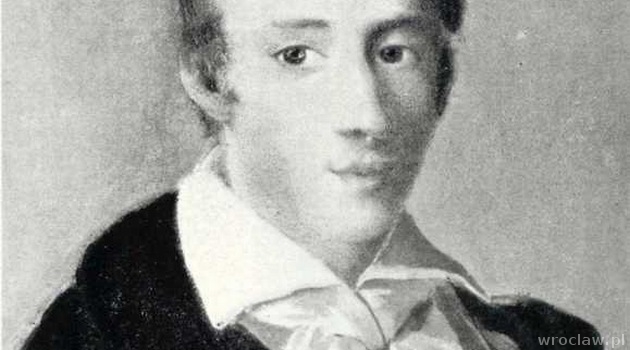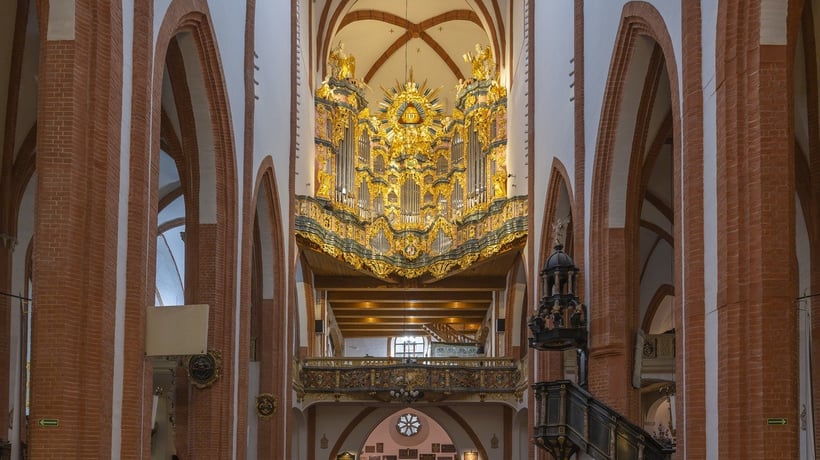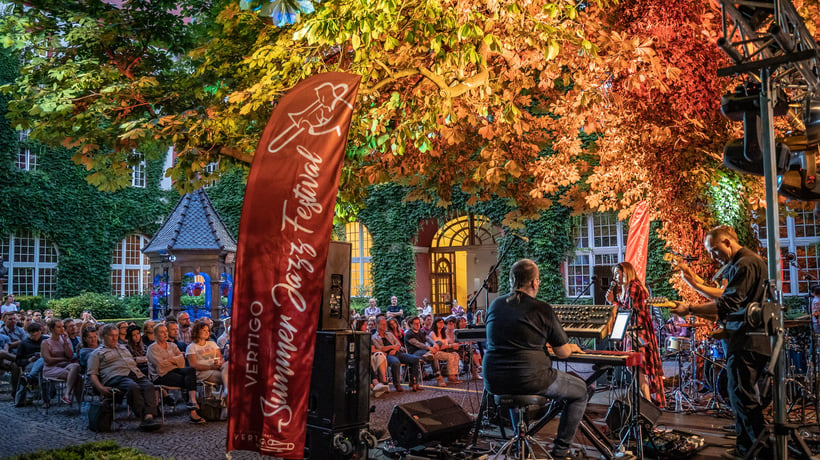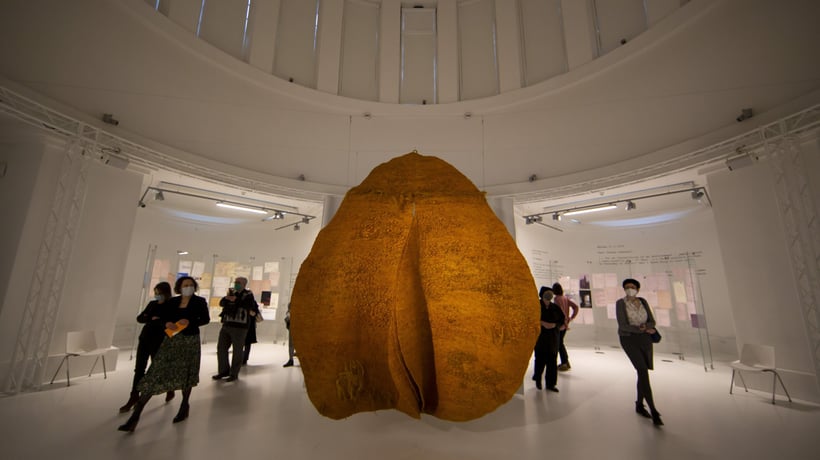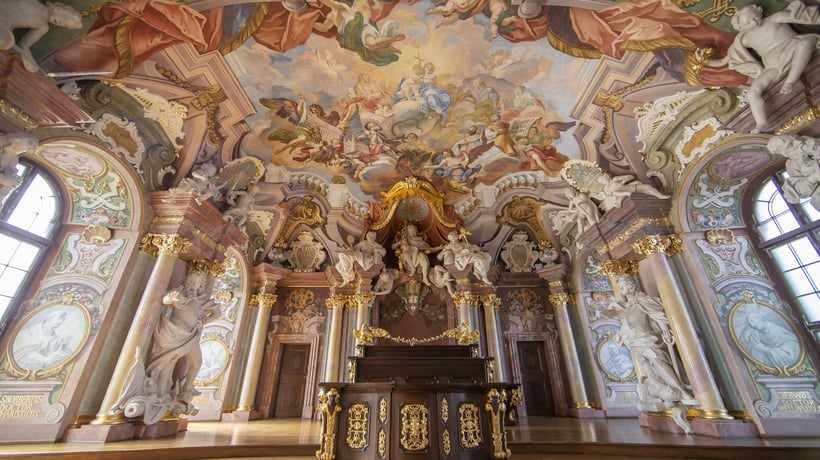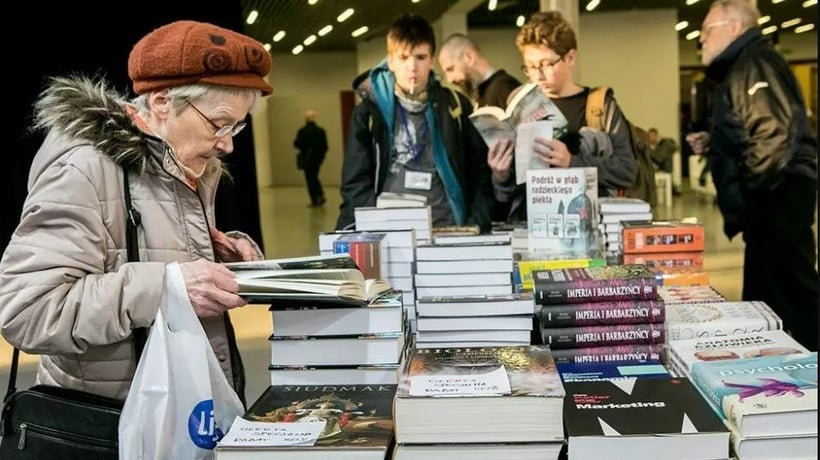Chopin didn't feel like leaving Wroclaw
The composer visited our city for the first time at the end of July 1826, on his way to the spa town of Bad Reinerz (Duszniki-Zdrój). Chopin was also on a mission - he was to deliver professor Józef Elsner's letters to two of his friends. One was a cathedral bandmaster, Joseph Ignaz Schnabel, and the other one was an organist of St. Elizabeth's Church, Wilhelm Berner. We know today that the composer didn't succeed in delivering the correspondence, but when the Chopin family was on their way back, Frederic met with the gentlemen, also played before Schnabel in the cathedral. The third time the composer came to Wroclaw was when he was nineteen, in September 1829. It is known that he and his friends: Ignacy Maciejowski and Alfons Brandt stopped at the "Ruth Wreath" ("Ruciany Wianek") inn at ul. Oławska.
 Ul. Oławska, landscape from 1826
Ul. Oławska, landscape from 1826
The most information is known, however, about the fourth and last visit of Chopin to Wroclaw, at the beginning of November 1830. Together with his friend Tytus Wojciechowski, he stayed at the "Golden Goose" ("Pod złotą gęsią) inn, at today's ul. Ofiar Oświęcimskich (closer to ul. Szewska), he went to the theatre and used the services of a coachman, who took him, among others, to the Market Square and Ostrów Tumski. He also agreed to play a concert at the Hotel Polski, at today's ul. Biskupia, and after the performance he complained in a letter that "he didn't eat more than a broth", and with amusement watched the dances, which he called "clumsy German prancing." But the experience of Wroclaw must have been very pleasurable after all, because he reported the family: "We didn't feel like leaving Wroclaw at all." Today, our city is one of the few in which Chopin gave a public concert (in his lifetime, he played only approx. 30 of them!).
Teenage Weber a bandmaster of the City Theatre
Carl Maria von Weber is known today as the person behind the German national opera "The Marksman", and excellent composer who started his career in Wroclaw. On July 11, 1804, when he was named the bandmaster of the City Theatre (then at the corner of ul. Oławska and ul. Piotra Skargi), he was just 18 years old! Historical documents confirm that his two-year stay at Wroclaw and work with the local orchestra significantly improved the ensemble's musical performance level. Weber was known for his precision and introduced many changes, especially concerning the distribution of the orchestra, which positively affected the quality of sound. The first première he prepared was Mozart's "The Clemency of Titus". He remained inspired during his stay our city, with 60,000 residents at the time. It is here that he started composing his own opera, "Rübezahl", and the audience had the opportunity to listen to the overture and a fragment of one of the choruses.

A commemorative plaque with the image of Carl Maria von Weber on High School no. 9 building (IX Liceum Ogólnokształcące)/photo: Tomasz Walków
One of the reasons for his resignation was the fact that he didn't have enough time to compose his music, but he remembered his stay in the city with sentiment. "My appointment to the post of music director in Wroclaw opened new fields for broadening my knowledge. I have created a new orchestra and choir," he recalled. Residents of Wroclaw did not forget him, and eagerly kept track of his career. The proof was that the première of "The Marksman" took place in Wroclaw in 1821, shortly after its Berlin world première.
Honorary doctorate of the University of Wroclaw for Johannes Brahms
Only once in his lifetime did the great master receive such honour, and it was right here in Wroclaw! And it was all due to Salomon Kauffmann, grandfather of the famous scientist, Max Born. The rich industrialist, who ran an artistic salon in Wroclaw, together with philosopher Wilhelm Dilthey persuaded the authorities of the University of Wroclaw to honour Johannes Brahms with an honorary doctorate ("Johani Brahms Holsato artis musicae severioris in Germania nunc principi"). It happened on March 14, 1879, and for this solemn occasion the master composed the "Academic Overture" played by orchestras to this day. Its world première took place in January 1881. It was then that Brahms wrote also two first bars of the piece in the album (so called Poesie-Album) of Kauffmann's daughter, Margarethe. The booklet survived and today is presented in Edinburgh library.

The first two bars of "Academic Overture" which Brahms wrote in Max Born mother's album
But Brahms used to visit Wroclaw on more occasions, as many as eight times (from 1874 to 1886). The first time he aroused great enthusiasm of the public was in 1874, when he played his Piano Concerto in D minor. The composer's biographer remembered the Wroclaw rehearsal and recalled Brahms "striking the piano keys like a lion." We know that in 1878 the master was present at the opening of the renovated Springer Hall (today at ul. Piłsudskiego), which has ever since been named Wroclaw Concert House, and could accommodate 1200 music enthusiasts. Brahms performed also in the Oratorium Marianum, a music hall of the University of Wroclaw.
Wagner breaks popularity records
When Ewa Michnik staged Wagner's tetralogy "The Ring of the Nibelung", she didn't whet the appetites of thousands of audience for the German master's music. It's because the residents of Wroclaw have always loved him. In the second half of the 19th century, his work aroused great interest . Before the composer came to Wroclaw in 1863, his "Tannhäuser", "The Flying Dutchmas" or "Lohengrin" had already had their premières here. Short, but charismatic Richard Wagner arrived with us in December, and on the 7th day of the month he conducted, featuring fragments of his dramas, including the love song from "Tristan and Isolde". By the end of the 19th century, his dramas and operas represented a significant percentage of all performance staged at the City Theatre.

A photo of Richard Strauss, who was applauded in Wroclaw
Strauss thanks the residents of Wroclaw
German master Richard Strauss (not related to "the Strausses"), the author of such operas as "The Knight of the Rose" or "Salome", and great symphonic poems was also a regular guest in Wroclaw, though in his case information is somewhat available. We know, however, that the première of his "Salome" in February 1906 in the Wroclaw City Theatre (now Wroclaw Opera) went down in history. The fantastic performance, as well as the enthusiastic reception prompted Strauss to express his gratitude by writing the "Schlesische Zeitung" daily, singing his praises to the audience.
